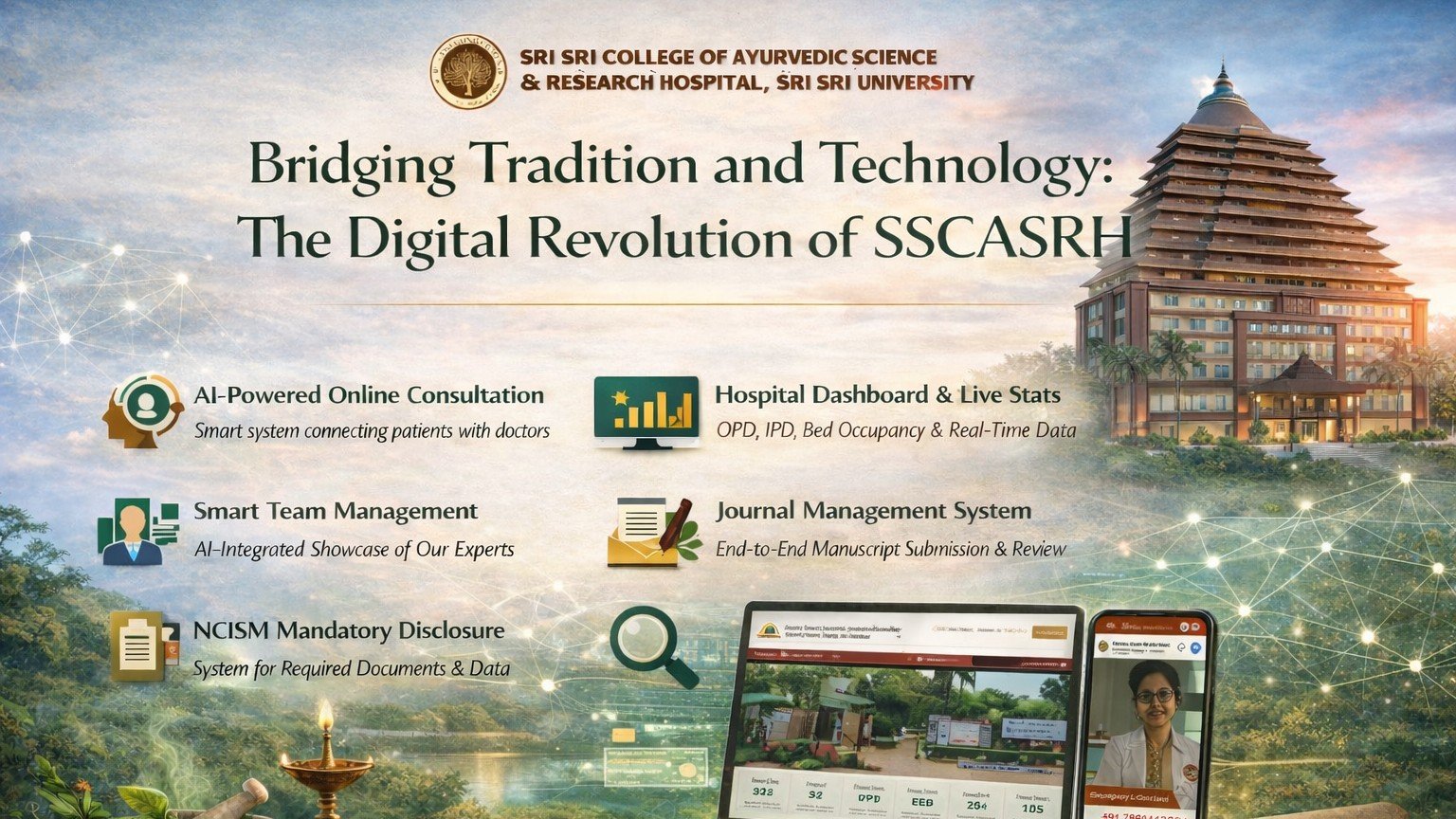 Technology
Technology
Bridging Tradition and Technology: The Digital Revolution of SSCASRH
SSCASRH, Sri Sri University, launches a groundbreaking digital platform blending ancient Ayurveda wi...
Ayurveda is a component of His Holiness' global agenda of bringing traditional Indian medicine to the forefront of study and innovation.
This hospital and, later, college will not only give course knowledge and practical application, but will also serve as a research hub for Ayurvedic medicine.

Serving the community with dedication and care
The prime objective of the University AYURVEDIC COLLEGE & HOSPITAL is to provide Ayurveda health care facilities to all the sectors of society in Odisha specifically to the socio-economic backward region of the village Godisahi, Arilo, Bidydharpur and Cuttack city.
"Let us spread Ayurveda, a good healthy lifestyle and tell people to use Ayurvedic products. You all should promote Ayurveda."
Our comprehensive range of Ayurvedic departments and specialties
General Medicine
Detoxification
General Surgery
Eye & ENT
Pediatrics
Gynecology
Preventive Medicine
Physical Therapy
Ayurvedic Texts & Philosophy
Physiology
Anatomy
Pharmacology
Pharmaceutics
Pathology & Diagnostics
Toxicology & Forensics
We accept all major health insurance providers for cashless treatment
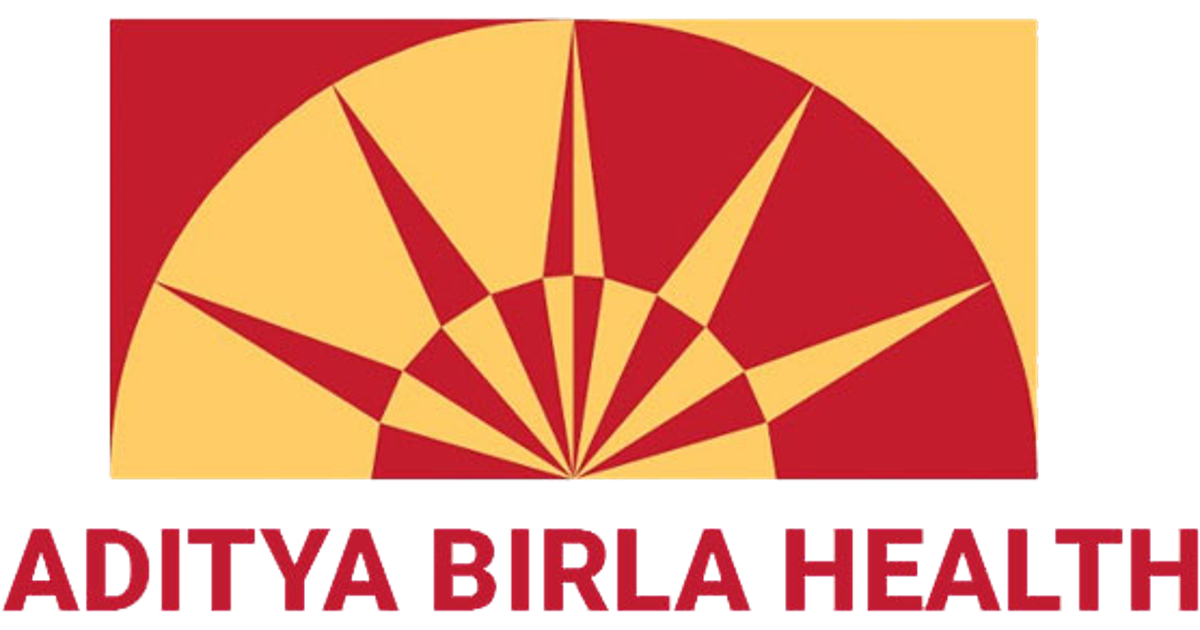 Aditya Birla Health Insurance
Aditya Birla Health Insurance
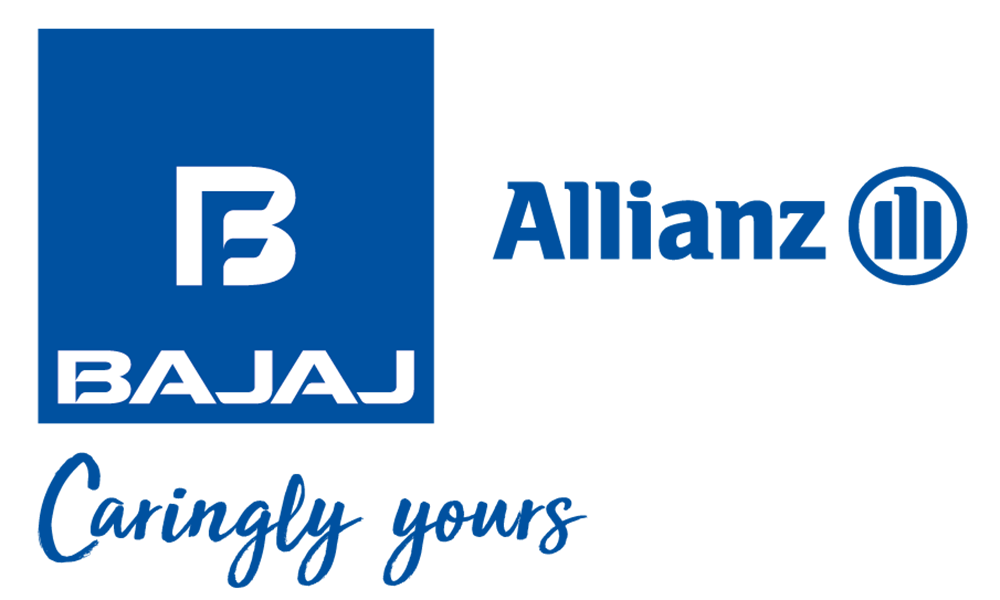 Bajaj Allianz General Insurance
Bajaj Allianz General Insurance
 Chola MS General Insurance
Chola MS General Insurance
 Future Generali Health Insurance
Future Generali Health Insurance
 ICICI Lombard GIC
ICICI Lombard GIC
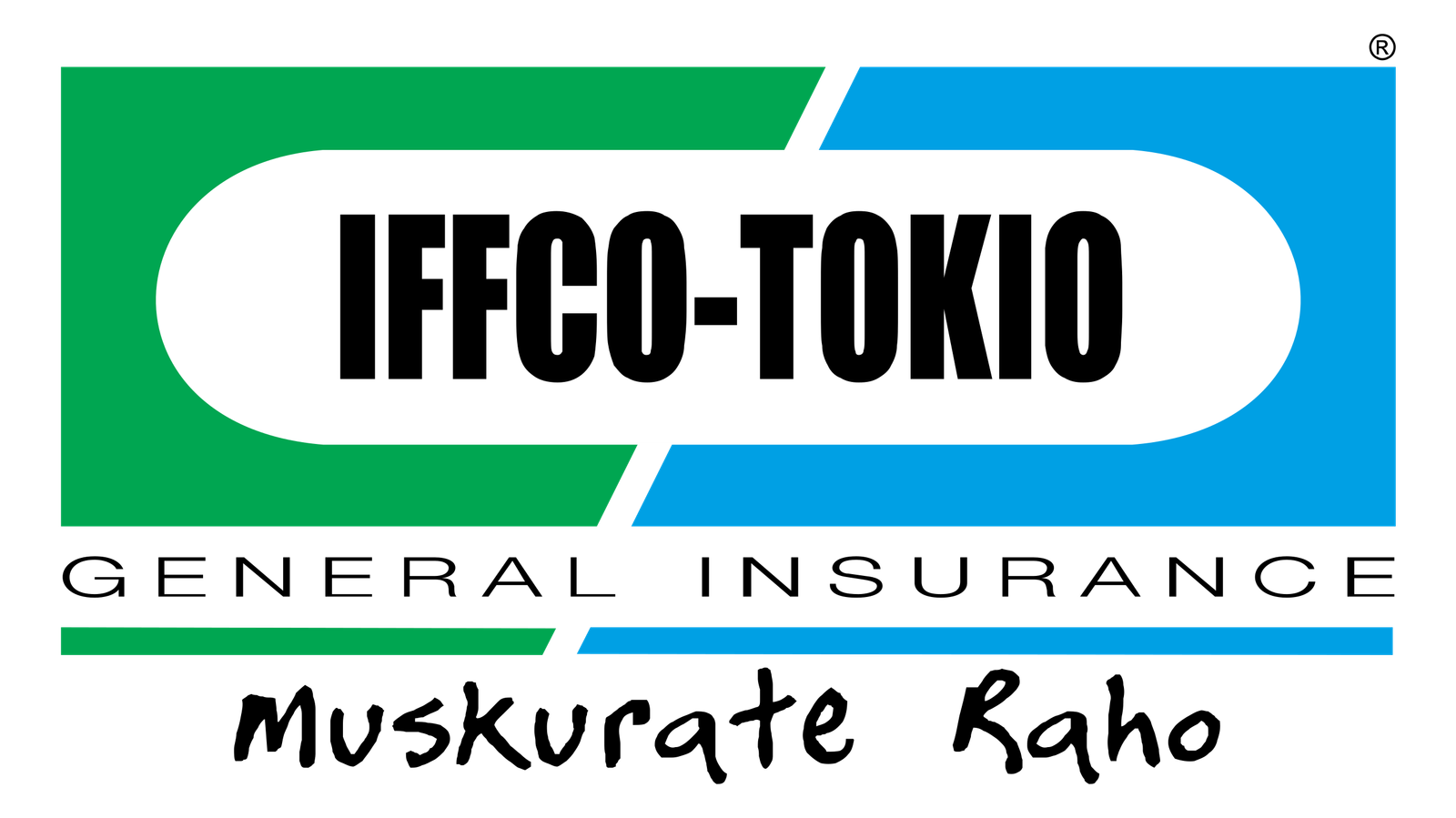 Iffco Tokio General Insurance
Iffco Tokio General Insurance
 Liberty General Insurance
Liberty General Insurance
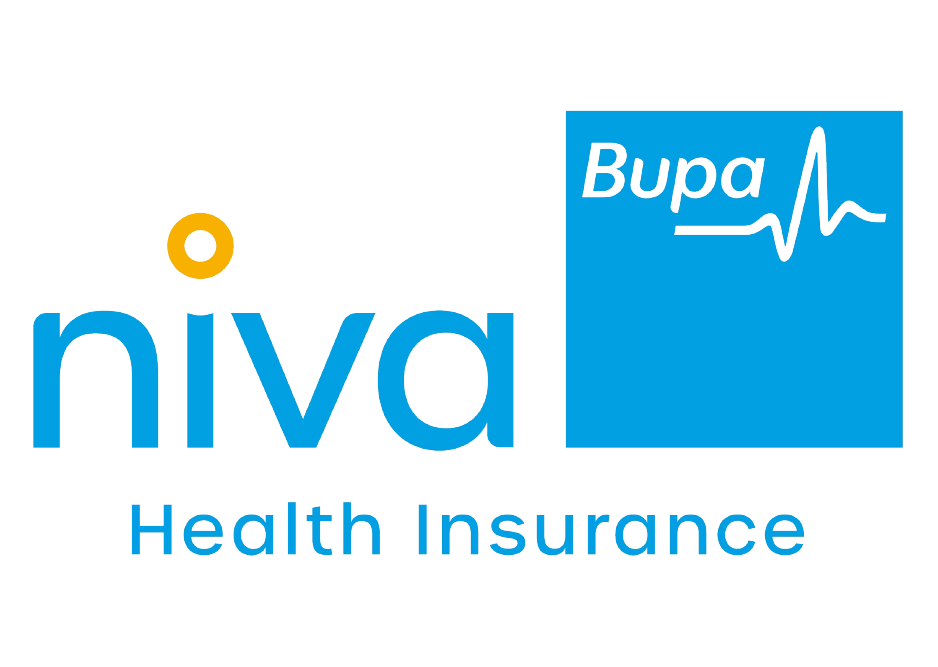 Niva Bupa Health Insurance
Niva Bupa Health Insurance
 Reliance General Insurance
Reliance General Insurance
 SBI General Insurance
SBI General Insurance
 Link K Insurance TPA
Link K Insurance TPA
 HDFC Ergo
HDFC Ergo
 Volo
Volo
 Aditya Birla Health Insurance
Aditya Birla Health Insurance
 Bajaj Allianz General Insurance
Bajaj Allianz General Insurance
 Chola MS General Insurance
Chola MS General Insurance
 Future Generali Health Insurance
Future Generali Health Insurance
 ICICI Lombard GIC
ICICI Lombard GIC
 Iffco Tokio General Insurance
Iffco Tokio General Insurance
 Liberty General Insurance
Liberty General Insurance
 Niva Bupa Health Insurance
Niva Bupa Health Insurance
 Reliance General Insurance
Reliance General Insurance
 SBI General Insurance
SBI General Insurance
 Link K Insurance TPA
Link K Insurance TPA
 HDFC Ergo
HDFC Ergo
 Volo
Volo
Contact our billing desk for insurance verification and cashless treatment
Written by Our Expert Doctors
 Technology
Technology
SSCASRH, Sri Sri University, launches a groundbreaking digital platform blending ancient Ayurveda wi...
 Health
Health
Garbhasankar is one of the 16 sanskars in Ayurveda, focusing on the psycho-social and physical devel...
 Health
Health
Ayurvedic skin care is deeply rooted in ancient Indian medicine. Discover how to identify your uniqu...
Understanding your unique mind-body constitution (Prakriti) is the foundation of personalized Ayurvedic treatment.
Take our comprehensive Prakriti Assessment Quiz to discover whether you are Vata, Pitta, or Kapha dominant. Get personalized diet, lifestyle, and wellness recommendations based on your results!
Vata
Pitta
Kapha
5-minute quiz • Instant results